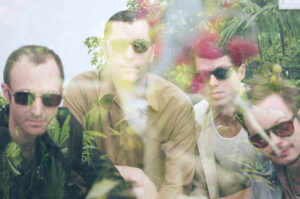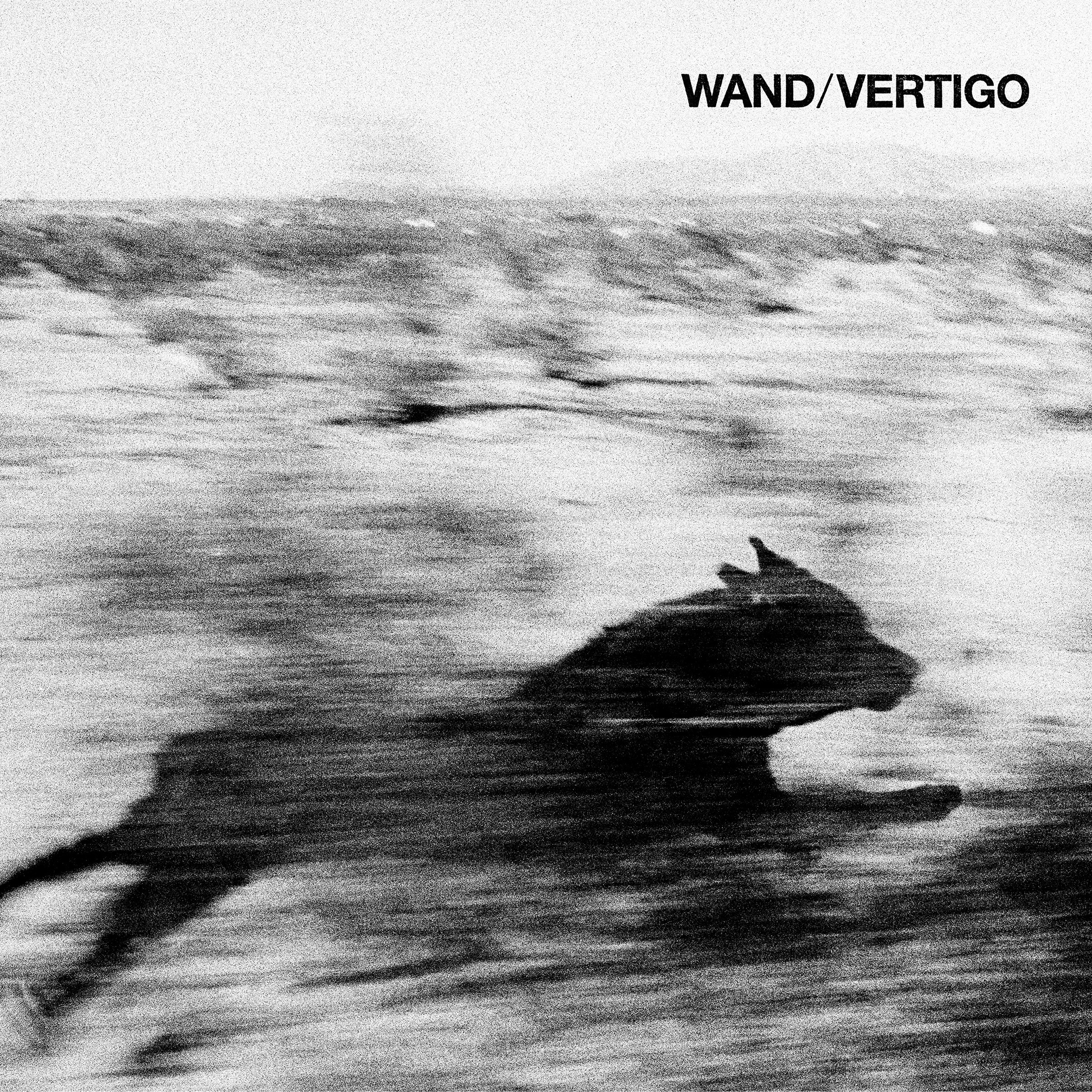The Guest List is a regular book column that surveys the reading habits of our favorite musicians. In this edition, Emily McBride talks with Cory Hanson, the singer-guitarist for Wand. The group’s latest album, Vertigo, was released in July on Drag City Records.
Emily McBride: I know Vertigo was written and recorded mostly through improv, but I’m wondering if you had any literary influences that might have crept in. I know that there’s a narrator character, and a lot of themes deal with the narrator’s instability and narcissism. So just wondering what you were reading, and if any of that inspired any of the writing.
 Cory Hanson: I think the thing that had a big influence on the writing of Vertigo was In Watermelon Sugar by Richard Brautigan. I read that just before jumping into the studio with Wand, and we didn’t get to the lyrics until way further down the line, but just that sort of simple language, almost like a fairy tale. . . . It’s almost like a children’s story, but it has this sinister dystopian thing that’s happening underneath, and all the characters have very simple motivations that are reductive. Nobody seems like they’re quite themselves, and it’s just very surreal. Language—when you reduce it to simple phrases and use repetition—can really create a kind of atmosphere that is very alien. It feels like another planet where people are talking.
Cory Hanson: I think the thing that had a big influence on the writing of Vertigo was In Watermelon Sugar by Richard Brautigan. I read that just before jumping into the studio with Wand, and we didn’t get to the lyrics until way further down the line, but just that sort of simple language, almost like a fairy tale. . . . It’s almost like a children’s story, but it has this sinister dystopian thing that’s happening underneath, and all the characters have very simple motivations that are reductive. Nobody seems like they’re quite themselves, and it’s just very surreal. Language—when you reduce it to simple phrases and use repetition—can really create a kind of atmosphere that is very alien. It feels like another planet where people are talking.
EM: Previously, you’ve also referenced the writing of French artist and theorist Antonin Artaud and Italian philosopher Franco Berardi. Do you have favorite works by them?
CH: “Bifo” [Franco Berardi], I really liked his book Heroes. It was about mass murder and suicide, but it was named after the David Bowie song. He writes in a plain, noninstitutional way. He talks about the way that capitalism affects you psychologically, and how it preys on mental instability. Capitalist cultures—like American cultures that don’t have any socialism, or actively are trying to eject any kind of communism or socialism out of their country and their politics—those countries have a sense of precarity that is a part of the system of capitalism. This isn’t his thesis—this is what I took away from it.
Then I had an Artaud anthology, with all of his poetry and a bunch of his journal entries from when he was institutionalized. He’s a guy who sort of built his whole style on the fact that he’d broken through the threshold of sanity, that he was an insane person. Sort of like Kanye West. He was like, “my mental illness is my superpower,” in a sense, but he said it in a much more interesting way. When I was in college, I was reading Anti-Oedipus by [Gilles] Deleuze and [Félix] Guattari, and they reference Artaud often. He was an enigma. So that was sort of what drew me to Artaud.
EM: What are some of your other favorite philosophers or philosophical works?
CH: I haven’t read a lot of philosophy recently. I like [Michel] Foucault. I like Discipline and Punish. It’s just kind of sexy. The French post-structuralist stuff is like [Friedrich] Nietzsche and [Karl] Marx, but just more fun. I mean, Nietzsche is pretty fun to read, too. But the thing that Foucault does is pretty interesting, taking the genealogical style of Nietzsche, and then applying that to the prison system and the system of mass incarceration, or things like that. I haven’t read any of this stuff in a while, so I feel like I’m not sharp on it. I mean, the last book that I read—I literally finished it last night—was Rodney Dangerfield’s autobiography [It’s Not Easy Bein’ Me: A Lifetime of No Respect but Plenty of Sex and Drugs], so that’s sort of where I’m at.
EM: Well, let’s immediately talk about that. What led you to that, and how did you like it?
CH: On tour, I was watching an interview with Howard Stern and Rodney Dangerfield, and he was there promoting his autobiography. It was probably six months to a year before he died that the book came out. So he wrote this book, and then he was dead. It’s kind of interesting in that way, because you read about his whole life, and then he’s like, “yeah, now I’m about to die,” and then he dies. But it’s a really sad story. He got no respect, let’s just say that. His parents didn’t give a shit about him. He was roaming the streets of New York. There’s a period when he’s a sort of a child sex worker. And he doesn’t make it in show business until he’s forty. He’s selling aluminum siding full-time, trying to raise a family, and then he made it big on The Ed Sullivan Show. I like reading books about comedians, because I just don’t know how comedy works at the stand-up level. I don’t know how you would have the drive to get up there on stage, in front of people, and just get booed off stage over and over and over again until people start liking you. And you have to figure that out. I don’t think I could do it.
I also read Norm Macdonald’s autobiography. Highly recommend. It’s called Based on a True Story, and I’m pretty sure 90 percent of the book is outrageous lies. He gets raped multiple times. He’s constantly smoking cigarettes that are dipped in heroin. I know he was a big-time gambling addict. Had a really bad problem gambling, but in the book, he’s on lines of million-dollar credit—like that would ever happen in a casino—and he’s just blowing, you know, $500,000 on craps. It’s a really, really good book. I would say, as far as autobiographies go, it may be the best.
EM: So what genre of book do you tend to gravitate toward?
CH: I read more nonfiction, like autobiography-type stuff these days. A lot of engineer books, and then I have a lot of guitar books that are for scales and chords. Those are the things that I probably read the most, because I can apply it directly to what I do. [There are] some poetry books that I’m sort of always going through. The David Berman book Actual Air is one.
EM: What do you like about Actual Air?
CH: He’s known for being the frontman of Silver Jews, but he was in a league of his own as far as poetry goes. Too bad he only ever put out one book, but that one is great. I don’t know how else to explain it.
EM: What are some of your favorite books about music?
CH: I really like Are We Still Rolling? by Phill Brown. He’s a well-renowned engineer, and it’s just anecdotes about him being in the studio with the Rolling Stones. He’s definitely in the top five greatest engineers of all time. He’s done incredible work on Stones records. He worked on Led Zeppelin IV. He worked on these records that I—and also Robbie [Cody] from Wand—are super into: the Talk Talk records and then the Mark Hollis record. He engineered those records, and they have a sound, like an engineering sense, that is just beyond. They’re so hi-fi, but they have so much character. There’s a lot of dynamic range, not a lot of compression. So it sounds really good. And there’s also a lot about studio chemistry, you know, because that’s a big part of being an engineer: just being able to sit with people you’ve never met and figure out how to chill with them and work and put up with them for sixteen hours a day. You have to manage people’s feelings in a lot of ways. So it’s a lot of stuff like that.
EM: Is there a book you return to over and over?
CH: William Blake, I feel like is something I go back to a lot just because it’s around, and I pick it up and read. I have Songs of Innocence and of Experience. A lot of the time I just read things to see if I get inspired, or if a light bulb goes on, then I can follow that. Or if I’m searching for a line in a song and I can’t find it, I’ll try to either watch a film or listen to other people’s lyrics and try to pick up something, or sometimes read a good book.
I was just reading this book, Just for the Curious by Allan Holdsworth. That’s advanced scale techniques. Basically what I’m searching for constantly is just opening up the fretboard of the guitar so that I can go anywhere, and I will not only know where I am, but I have a set of things that I can pull off and that’ll be interesting and not sound like other stuff. His whole thing is unlocking the fretboard, and it’s a lot of jazz chromatic scales. But then also major scales, minor scales. He is a really interesting guitar player. He’s sort of like in a class of his own. As far as playing goes, it’s very legato. He very closely approximates the sound of a saxophone in a cool way. He’s badass.
Emily McBride is a music writer, previously serving as an editor at Paste Magazine and YouTube Music, as well as a freelance contributor to Consequence and Noisey. She currently resides in Portland, Maine and is on a lifelong quest to find the perfect michelada.

